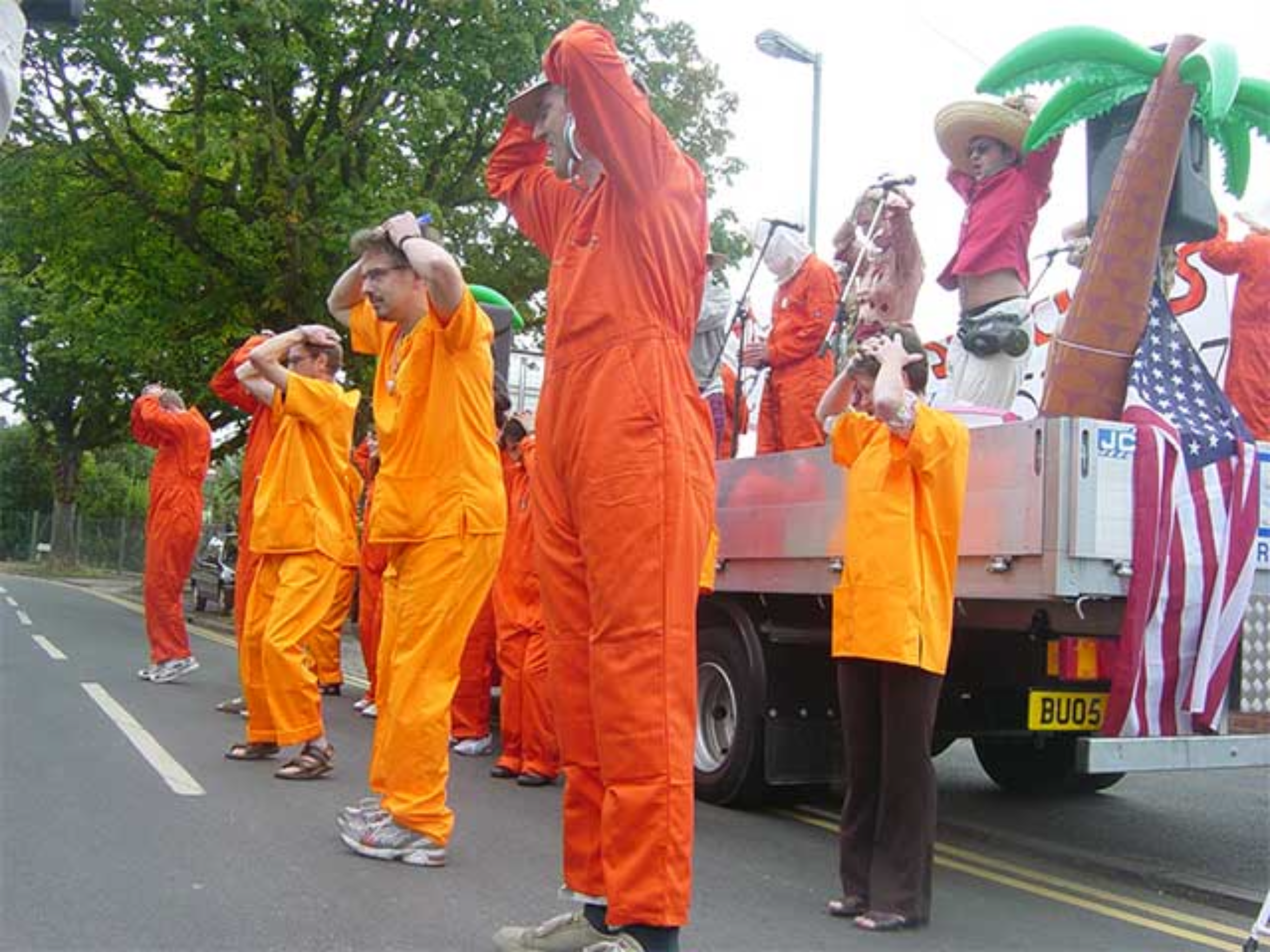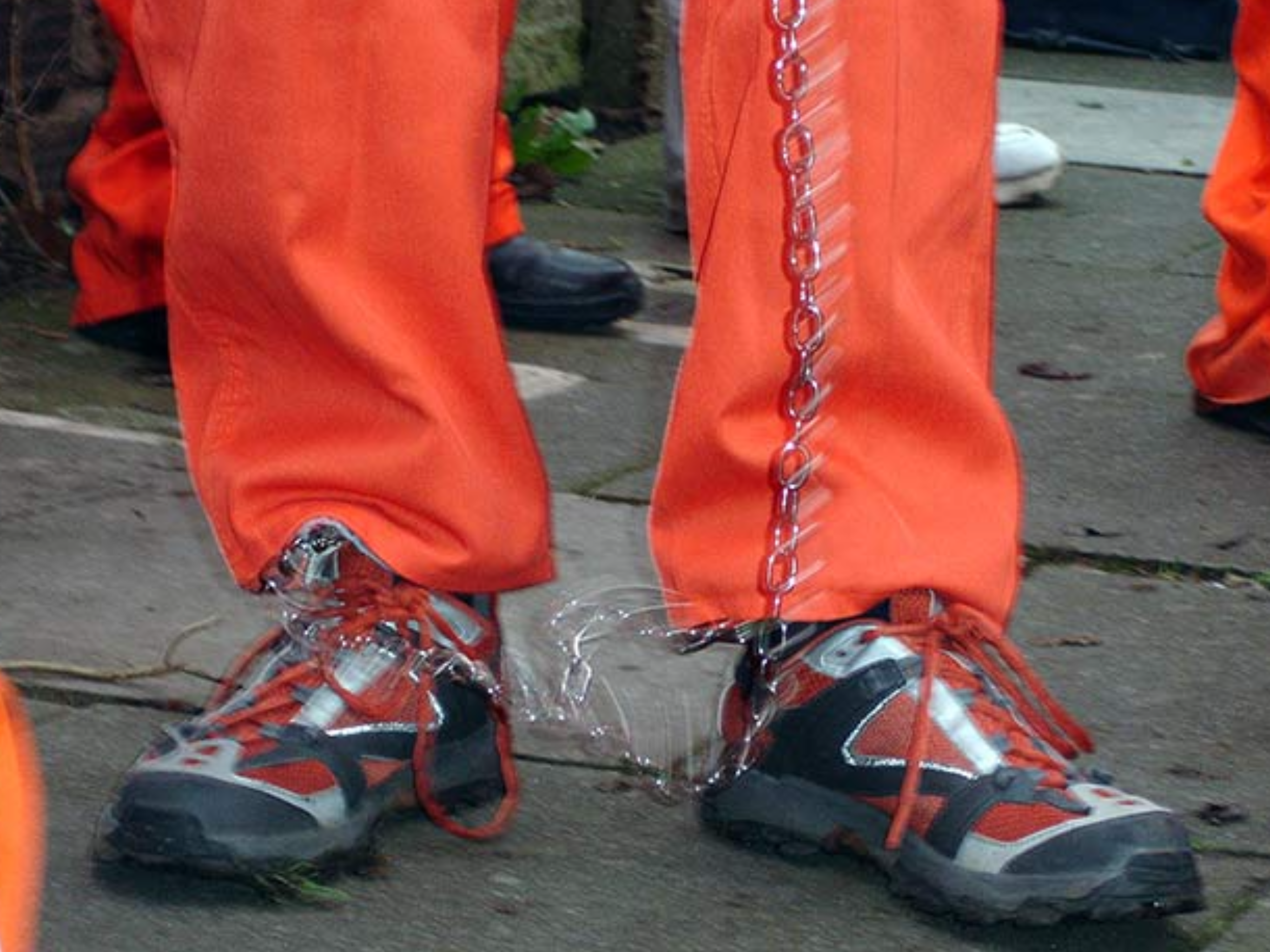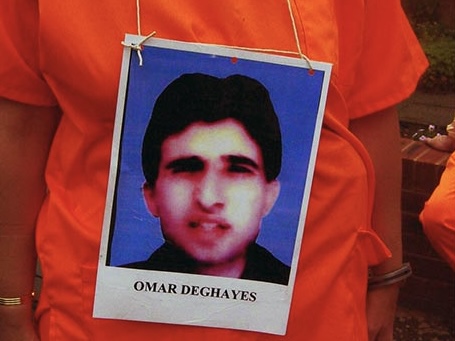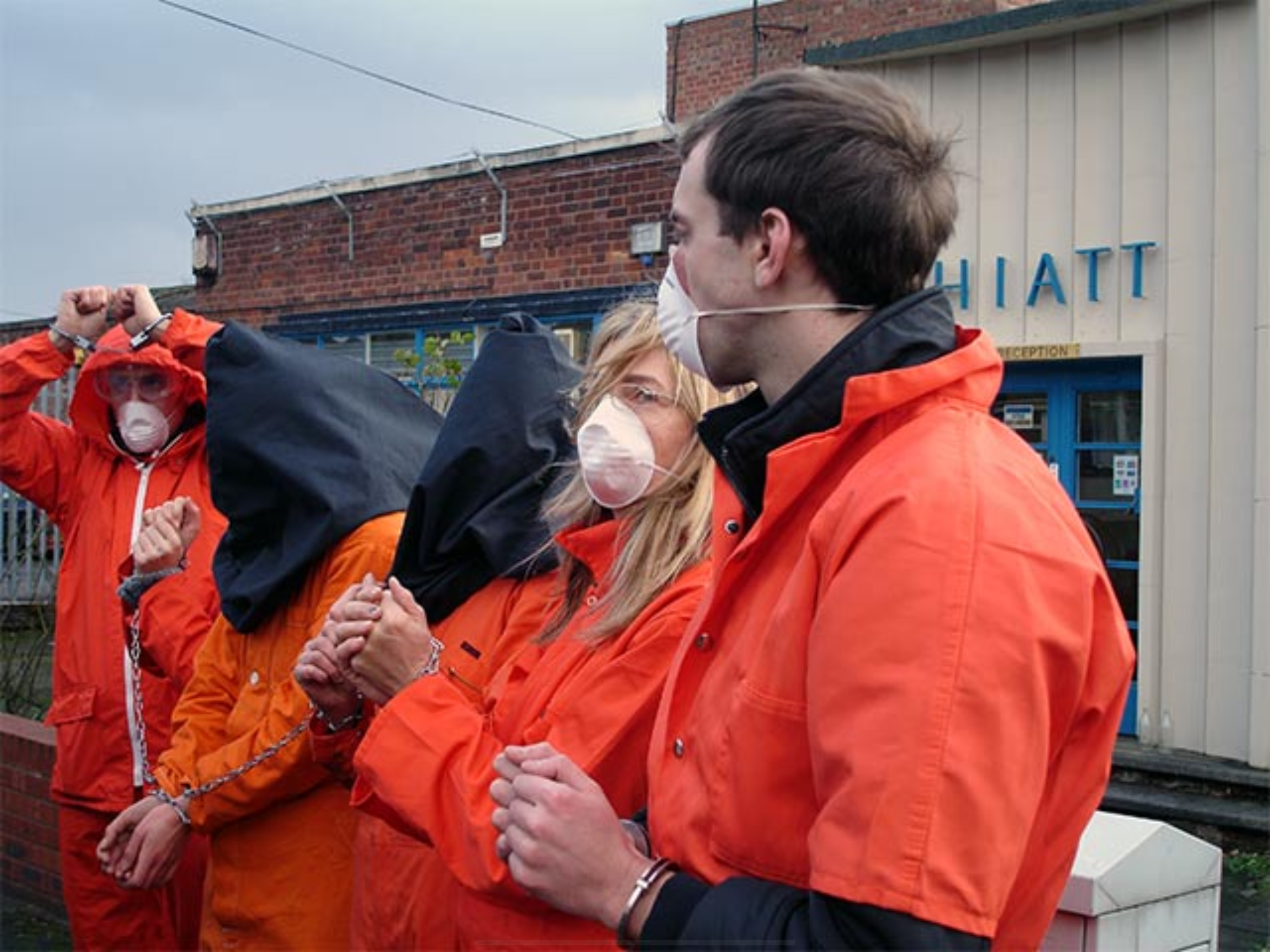
followthethings.com
Security
“Tackle The Shackles“
Two protests organised by Reprieve, Amnesty International, Save Omar Campaign & the Birmingham Guantanamo Campaign at Hiatt & Co, 111-115 Baltimore Road, Birmingham, UK (see map) on 8 September 2005 & 11 January 2007.
Selected photographs above. Featured in a scene from the documentary film ‘Taking Liberties since 1997’ (check streaming availability here and start at 1hr 20 minutes).
British citizens and residents are detained in the USA’s Guantanamo Bay detention centre, but none are charged with a crime. They notice the Hiatt & Co. leg irons restraining them are ‘Made in England’, or ‘Made in Birmingham’, just like them. When some go on hunger strike in 2005, and when the 5th anniversary of the camp’s opening takes place in 2007, musicians, doctors, lawyers, comedians and activists protest outside the Birmingham, UK factory where they are made. They dress as Guantanamo inmates and dance the ‘shackle shuffle’ to a live band performing on a flatbed truck. Former detainees, their family members, lawyers, celebrities and activists carry photos of detainees and give speeches. People chain themselves to railings and deliver a cake to the factory. Historically, protestors say, leg irons and other restraints were made in Birmingham to chain enslaved African people in the days of the British Empire. Their use at Guantanamo, they argue, is unethical and illegal. Does the export of these leg irons comply with the UK Government’s obligations under International law? Especially as Hiatt is owned by the UK’s BAE Systems and because the New Labour Government of the time had been loudly trumpeting its ‘ethical’ foreign policy. One detainee’s lawyer says, ‘If an ethical foreign policy means anything, it means not profiting from the torment of our own people.’ The protestors want to make this paradox mainstream news, and they succeed. In this trade justice activism, the violence and exploitation is found not where the commodity of produced, but where it is ‘consumed’. Hiatt closes its Birmingham factory and moves production to the USA. So, does this trade justice activism count as a success?
Page reference: Diana Shifrina (2013) Tackle The Shackles. followthethings.com/tackle-the-shackles.shtml (last accessed <insert date here>)
Estimated reading time: 54 minutes.
Continue reading Tackle The Shackles ![]()




